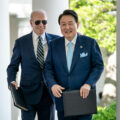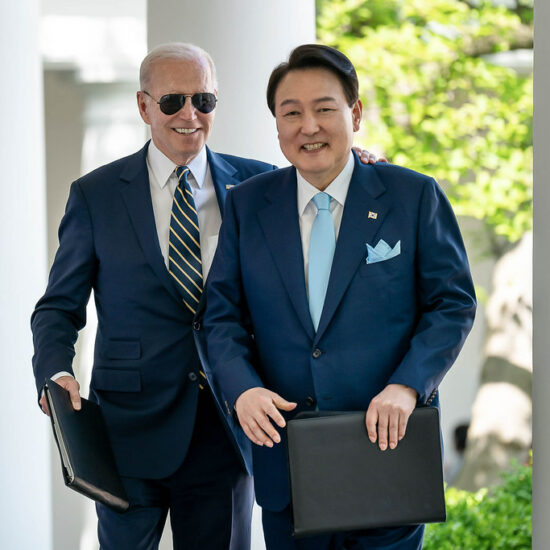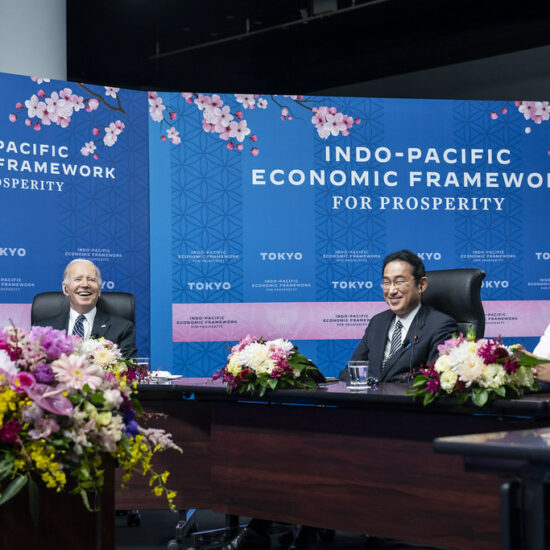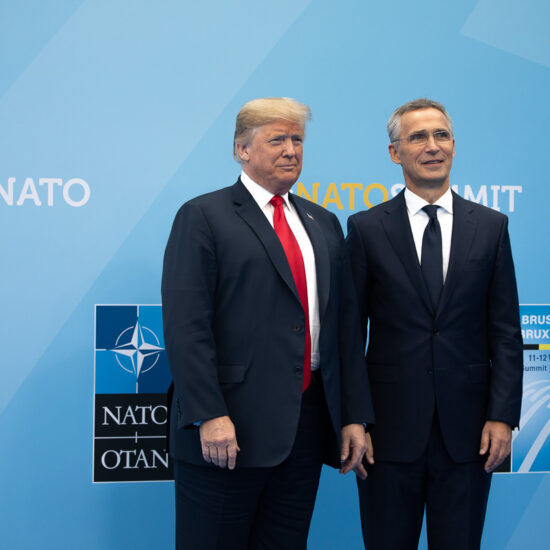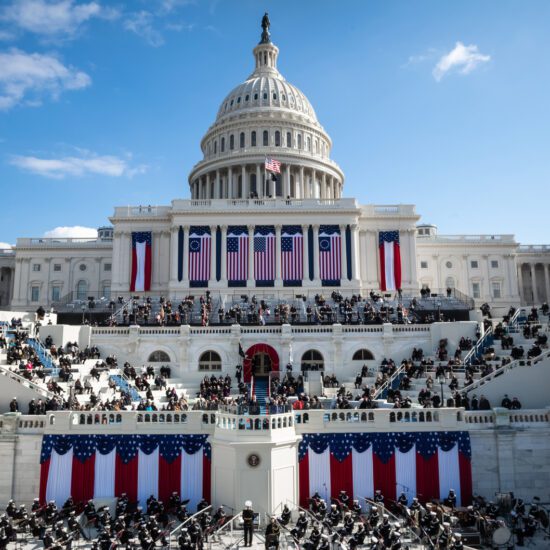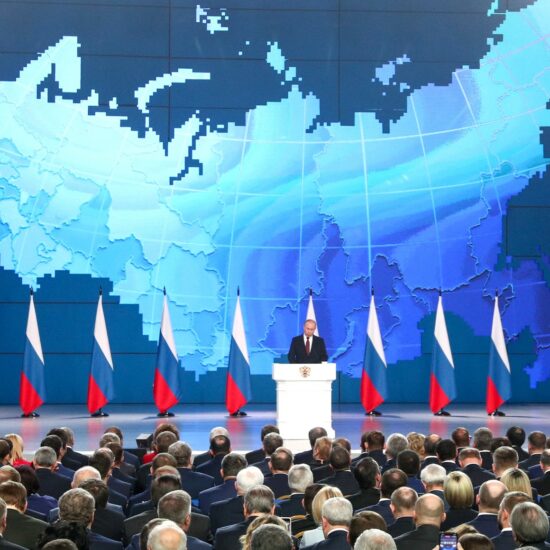
By Douglas Macgregor
U.S. Deputy Secretary of State Wendy Sherman’s visit to Beijing got off to a rocky start this week in the northern Chinese city of Tianjin. Almost before Sherman could commence on the now nearly perfunctory display of U.S. grandstanding and the obligatory lecture on norms and values, Xie Feng, China’s assistant foreign minister, told her in the bluntest of terms that China’s leaders have no patience for her “serious concerns” about China’s strategic agenda, let alone her moralizing, self-righteous tone.
Accustomed to bullying foreign heads of state and their diplomats on topics ranging from human rights and trade to climate change, Sherman—who started her career in social work—seems to have genuinely expected the Chinese to listen to Washington’s litany of complaints. That delusion is not Wendy Sherman’s alone.
As he travels across Asia, Secretary of Defense Lloyd Austin is attacking China for its “aggression against India, destabilizing military activity and other forms of coercion against the people of Taiwan, and genocide and crimes against humanity against Uyghur Muslims in Xinjiang.” Austin’s agenda also involves buttressing the Quadrilateral Security Dialogue (QUAD). Consisting of the United States, Japan, Australia, and India, the QUAD is widely perceived in Asia as the centerpiece of America’s containment strategy for China.
Yet, so far, the QUAD has been more smoke than fire. India and Australia are lukewarm when it comes to actions that may provoke China, and Japan seems more interested in stabilizing relations with Beijing than in confronting it. At least one major reason for the QUAD’s inefficacy is the creation of a new Asian trading bloc called the Regional Comprehensive Economic Partnership, or RCEP—a free trade agreement between China and the 15 Asia-Pacific nations of Australia, Brunei, Cambodia, Indonesia, Japan, Laos, Malaysia, Myanmar, New Zealand, the Philippines, Singapore, South Korea, Thailand, and Vietnam.
Together with China, Japan, and the Republic of Korea (ROK)—three of the four largest economies in Asia, the 15 member countries represent roughly a third of the world’s population and a third of global gross domestic product (GDP). Australia, meanwhile, is the top energy exporter within RCEP and the single largest source of coal and liquified natural gas (LNG) for China, Japan, and the ROK.
The strategic implications are inescapable. RCEP will not only surpass the European Union to become the world’s largest free trading bloc, but it will also lift tariffs and duties on 90% of commodities traded within the bloc over the next 20 years and significantly boost regional energy trade. RCEP will also establish new rules for e-commerce in Asia to include trade and intellectual property.
It is easy to imagine that the sheer magnitude of trade will likely shift the center of gravity for global economic activity to Asia. In any case, China is now destined to be the dominant force influencing the rules of trade in the Asia-Pacific region. Washington is only just beginning to grasp the implications. Recognizing a few basic facts could help toward that end.
First, in its dealings with the world, Beijing works hard to avoid military confrontation and unnecessary escalation. China makes no attempt to export Confucianism and pursues a policy of non-interference in the internal affairs of its potential customers. Instead, Beijing focuses ardently on its economic interests employing the power of money in all imaginable forms to cultivate customers and clients. As a result, Asian states are understandably reluctant to be identified with Washington’s scheme to contain or strangle China. RCEP members realize the huge economic potential of China and have no appetite for antagonizing Beijing, let alone go to war with it; indeed, they look to the Agreement as an efficient way to do business with the world’s largest market and advance their own interests.
Second, Americans fail to understand that Japan’s history of conflict with China revolved around the former’s unwillingness to make itself a tributary state of Greater China for the sake of gaining access to Chinese markets, not to mention the struggle for control of the Korean Peninsula. President Xi and his government have resolved the first conflict. Xi has given Japan complete access to Chinese markets from agriculture to mining and manufacturing. And Tokyo is also viewed by Beijing as an important source of capital investment for the foreseeable future. As for the second fault line, until Washington disengages its forces from the ROK, there will be no resolution of the conflict on the Korean Peninsula.
Finally, Washington’s inclination to militarize its dispute with China when the strategic competition in Asia actually centers on economic, not military, concerns is worse than foolish. It is also self-defeating, akin to a hurricane blowing down the White House and the occupant being concerned solely with repairing the mailbox.
One general problem is that the Washington national security establishment is too self-absorbed to understand the PRC and the 1.4 billion people it governs. For decades, Washington has failed to fathom that the vast majority of the Chinese in the mainland actually support the current regime in Beijing. There is little doubt that China’s central government in Beijing enjoys high approval ratings among adult Chinese. The question is “why”?
Other than the immense economic successes of China, the reason for general satisfaction with Beijing’s governance is due in large part to Xi’s anti-corruption campaign. In China, corrupt local officials not only face jail time, but the threat of execution. The Chinese might have a different conception of law and order when compared to those of Americans and Europeans, but they nonetheless care deeply for justice and Xi is seen as delivering on that front. In contrast to their views about the central government in Beijing however, when Chinese people are questioned about the competence and integrity of local government, they are much more critical.
Western policymakers would do well to also keep in mind that contemporary China is preeminently a Confucian society with a State-controlled economic order. Chinese or “nativized” Marxism never supplanted these cultural norms. Within its model of state capitalism, Beijing is clearly adept at co-opting clients through corruption, building coalitions against common foes, and subverting or infiltrating competing or opposing governments with cyberwarfare and various economic schemes; and Beijing is not shy to use such instruments of statecraft to achieve strategic advantages. Nevertheless, apart from the Leninist tactics and rhetoric Beijing employs in the conduct of its foreign policy, China today has steered away from Communism.
Do these points suggest that armed conflict between Washington and Beijing is inevitable? Certainly not. As noted earlier, Beijing regards armed conflict as antithetical to commerce and harmful to its business interests. Chinese ruling elites have therefore adopted a different, more cautious approach toward Washington premised on strategic patience that could be summed up as:
“Let America fall on its own sword in pursuit of global military hegemony while its government dramatically expands the U.S. money supply miring the country in inflation and economic meltdown and its intelligence apparatus wages war at home against its politically undesirable citizens fomenting social unrest.” After all, the Chinese have a much keener sense of history than most Americans, enough to know that arrogance is the ultimate cause in the downfall of the mighty.
To be fair, China has plenty of problems at home. In some sense, it can be argued that China and the United States are engaged in a contest of competitive collapse. However, unlike Washington, which always seeks instant results and short-term gains, Beijing will work steadily on its domestic problems and wait patiently for Washington to eventually either fix its own house or turn its bellicose sword back on itself.
Douglas Macgregor is a retired U.S. Army Colonel and former Senior Advisor to the Acting U.S. Secretary of Defense. He holds a Ph.D. in international relations from the University of Virginia and is a senior fellow at The American Conservative.

